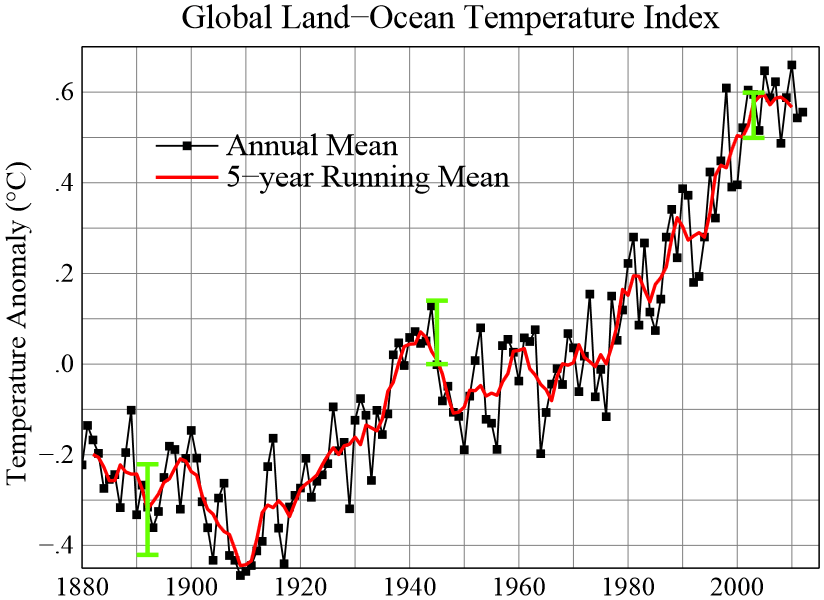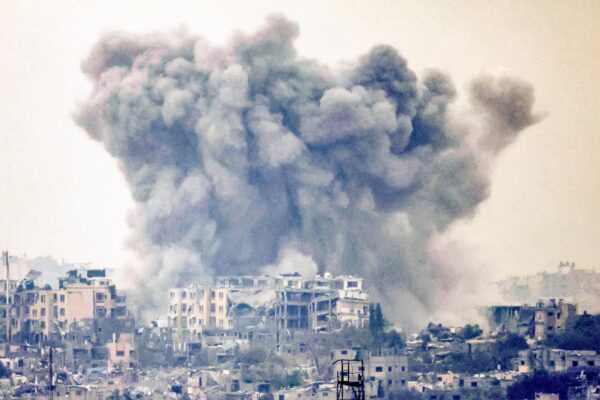We are failing to live up to the values of our faith when it comes to our responsibility towards the Earth.
We are failing to live up to the values of our faith when it comes to our responsibility towards the Earth.
The Muslim community as a whole, both currently and in historical terms, prides itself on the values our religion places on human rights, justice for the oppressed, and reverence for the world Allah (swt) created for us. Indeed, when Islam itself began the first actions of Prophet Muhammad (peace be upon him) were to condemn and eliminate the barbaric practice of female infanticide and to further the rights and status of women, as exemplified in Surah Al-Nisa. The establishment of the first ummah at Medina resulted in the drafting of the Medina Charter, one of the world’s oldest democratic constitutions and a solid historical
The establishment of the first ummah at Medina resulted in the drafting of the Medina Charter, one of the world’s oldest democratic constitutions and a solid historical artefact that proves the progressive and inclusive nature of this community. From the rights of individuals to the establishment of larger communities, Islam also taught the necessity to respect the natural world. Though animal consumption was and is allowed today, the rules regarding the treatment and proper slaughter of livestock to be considered zabihah halal (the ritual slaughter of meat) clearly indicates a value system in which animals were to be treated with dignity, allowed to live in their natural state, dispatched with as much care as can be given, and consumed infrequently. The Quran itself is full of poetic verses praising the biodiversity of the natural world and the complexity of life that modern day scientists are still discovering.
As ripe as our faith’s history and texts may be with respect for the natural world and for the rights of each other as human beings, we are currently failing to truly live up to the values we claim to be representative of our worldview.
Global warming is rapidly destroying the very earth we live upon through man-made acts such as the burning of fossil fuels that produce astronomical amounts of greenhouse gases, which are then released into our air. That combined with mass deforestation and water consumption, largely due to the demands of the global industrial meat industry, reduces the earth’s natural ability to remove carbon from the atmosphere and provide sufficient water and arable land for human survival. Water and land scarcity aside, erratic weather patterns spurred on by this atmospheric change have already produced super storms, widespread flooding, droughts, and food shortages. Although the earth has shown periods of relative heating and cooling in the past, the science is clear- the rapid warming of our atmosphere is directly linked to human behaviour and unless we act immediately, we are facing a catastrophic decline of both the natural world and civil society.
What needs to be emphasized is that the human activities that cause global warming are not only in violation of our supposed ethical responsibilities as stewards of the earth[1], but they are also causing untold human suffering that goes against our very morals as Muslims. The first action that sparked the Arab Spring was the suicide of a young Tunisian produce vendor who, frustrated at his inability to provide for his family and seeming indifference by his government, publicly immolated himself in both protest and utter despair. The following uprisings were no doubt a long-awaited political revolution, but global drought in the previous year led to a dramatic increase in the cost of wheat making it unaffordable and food staples scarce[2]. In neighbouring Libya, Egypt, and into Yemen protestors have been seen waving bread in the streets[3].
In some parts of Iraq where access to water has become increasingly scarce, ISIS was initially welcomed as they came bringing water and food to residents desperate and angry with the Baghdad government whom they felt were ignoring them. As droughts continue to plague the region, ISIS has mastered the ability to essentially use water as a means to control a desperate population, ensuring those caught in their area of control have few options to live-or leave[4]. What’s more, researchers and activists are also warning that similar scenarios may play out in water-scarce Jordan and Palestine where water is either poorly controlled by the government or unlawfully drawn out by foreign governments[5]. Though the Quran clearly guides us in numerous verses to both respect and care for the earth as part of our submission to Allah, we are destroying it and in so doing, we are directly making life impossible for millions and indirectly pushing others towards political extremes.
We must respond with an eco-justice approach that treats these complex yet interconnected issues holistically in the same manner that our faith itself is a holistic approach to life.
It will require us to hold conversations in our mosques and within our larger communities that address how we can shift to renewable energy sources or embrace a “greener” lifestyle in our personal lives. We have to reassess what it means to truly live a halal life. One simple yet profoundly influential area we can make real and immediate changes today is in the food we eat. The meat industry is the single largest contributing factor to climate change (and yes- that includes even locally sourced halal meat)[6]. Our communities in the West over consume animal products and we have refused to address the fact that just because something is permissible to eat, does not mean the circumstances by which we consume it is justified. It is a privilege to choose what you eat and that choice has a direct influence on the ability for others in disadvantaged areas to be able to eat at all. It has a trickle-down effect on the very stability of nations and the security of its population.
Environmental issues have long been disregarded as a separate category from human rights or political oppression, but the fact is they are directly linked to one another which global warming has brought to the forefront. The domestic and international policies that our respective countries enact will determine whether we help alleviate this ongoing ecological and human suffering-or compound it. In the United States alone, the Trump administration has set us on a regrettable path by withdrawing from the Paris Accord, rolling back Obama era environmental protections, working to revive an inevitably dying fossil fuel industry, and denying the existence of global warming itself. Simultaneously, the same administration seeks to restrict the admission of refugees and has cast those caught in conflict zones as terrorists or simply unwanted. Yet, the very actions they are taking by ignoring environmental concerns will only increase the mass exodus of individuals fleeing conflict exacerbated by conditions of drought, food shortages, and water scarcity. Currently, the UN does not recognize “climate refugees”, thus denying the most vulnerable people the right to relocate and seek protection[7]. The richest of the world are causing the slow and painful destruction of the world’s poorest.
As individuals living in the West, irrespective of your political beliefs, we are part of that oppressive wealth. Many of us have options others do not. We will not end the Syrian conflict or refugee crisis by food or renewable energy alone, but we also won’t win or prevent further conflict by politics alone either. Unfortunately, we do not have the luxury to wait to respond to climate change either as many in the scientific field argue that if we do not act today, we may lose the ability to stop or reverse this atmospheric change. As our earth continues on a path of instability we cannot expect that our societies and governments will somehow remain secure despite it. As resources continue to run dry and devastating weather patterns push more people out of their native land, we will only see a rise in refugees and internally displaced people both by conflict and by climate. As Muslims, it is incumbent upon us to stand up for the oppressed and the voiceless and neither can be accomplished without creating an eco-justice model that embraces the natural world as a direct extension of humanity.
by Anderson B. Al Wazni. Anderson Al Wazni (MSW) is a 2014 graduate of Smith College School for Social Work whose thesis research was published in the 2015 NASW Social Work journal. She currently works as freelance writer and speaker on Islamophobia, feminism, and countering extremism. She has also been featured in the Oxford University Press Blog, international religious publications, lectured at national and state level conferences, and continues to teach seminars for clinicians and policy advocates. In addition to social work, Anderson is a part-time student in Shia Islamic studies at the Al Mahdi Institute in Birmingham, England. She can be contacted at: Andyalwazni137@gmail.com
[1] Quran, Surah Al-An’Am; 6:265.
[2] Johnstone and Mazo, “Global Warming”.
[3] Johnstone and Mazo, “Global Warming”.
[4] Mohammed Tawfeeq and Salma Abdelaziz, ISIS Uses Water as Weapon in Mosul Fight, CNN, http://www.cnn.com/2016/11/30/middleeast/mosul-water-isis/index.html, (1 December 2016)
[5] Scott Greenwood, “Water Insecurity, Climate Change, and Governance in the Arab World”, Middle East Policy XXI, no.2 (Summer 2014): 140-156.
[6] Christopher Hyner, J.D. Candidate, A Leading Cause of Everything: One Industry That Is Destroying Our Planet and Our Ability to Thrive on It, Stanford Environmental Law Journal, https://journals.law.stanford.edu/stanford-environmental-law-journal-elj/blog/leading-cause-everything-one-industry-destroying-our-planet-and-our-ability-thrive-it, (25 October 2015).
[7] Jared P. Scott, The Age of Consequences, directed by Jared P. Scott (2016; PF Pictures, 2017).
For further reading/viewing:
https://www.youtube.com/watch?v=MjIXJMGpT3k






